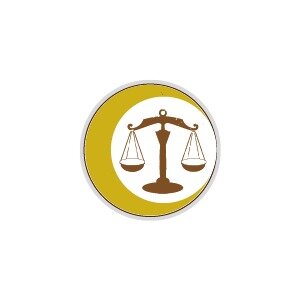Best Real Estate Lawyers in Kumasi
Share your needs with us, get contacted by law firms.
Free. Takes 2 min.
Free Guide to Hiring a Real Estate Lawyer
List of the best lawyers in Kumasi, Ghana
About Real Estate Law in Kumasi, Ghana
Real Estate in Kumasi, Ghana, is a growing industry with various legal regulations and considerations. Whether you are buying, selling, renting, or leasing property, understanding the intricacies of real estate law is crucial to protect your interests.
Why You May Need a Lawyer
You may require a lawyer for real estate transactions to ensure that the contracts are legally sound, to resolve disputes, handle complex legal issues, and provide legal advice on property-related matters.
Local Laws Overview
In Kumasi, Ghana, real estate transactions are governed by laws such as the Land Title Registration Act, 1986 (PNDCL 152), and the Land Commission Act, 2008 (Act 767). These laws cover aspects like land ownership, leases, transfers, and registration of titles.
Frequently Asked Questions
1. Can a foreigner own property in Kumasi, Ghana?
Yes, under the Ghana Investment Promotion Centre Act, foreigners can own property in Ghana as long as they comply with the necessary regulations.
2. What are the procedures for land title registration in Kumasi?
The process involves filing an application, conducting a search at the Lands Commission, submitting required documents, and paying the necessary fees.
3. How can I resolve a real estate dispute in Kumasi?
You can seek legal advice to explore mediation, negotiation, or litigation to resolve the dispute depending on the nature of the issue.
4. Are there any restrictions on land leases in Kumasi?
There are certain restrictions on land leases in Kumasi, such as the maximum leasehold term and the requirements for renewing a lease.
5. What are the common pitfalls to avoid in real estate transactions in Kumasi?
Common pitfalls include failing to conduct due diligence, not understanding the terms of the contract, and not seeking legal advice when needed.
6. What are the taxes involved in real estate transactions in Kumasi?
Taxes may include stamp duty, capital gains tax, withholding tax, and property rates. It is advisable to consult with a tax professional to understand your tax obligations.
7. How can I verify the authenticity of a land title in Kumasi?
You can verify the authenticity of a land title by conducting a search at the Lands Commission and verifying the documents with the appropriate authorities.
8. Can I use a power of attorney for real estate transactions in Kumasi?
Yes, a power of attorney can be used to authorize someone to act on your behalf in real estate transactions in Kumasi.
9. What are the regulations for property development in Kumasi?
Property development in Kumasi is regulated by laws such as the Town and Country Planning Act, 1990 (PNDCL 84), which governs land use, building permits, and environmental regulations.
10. How can I ensure a smooth real estate transaction in Kumasi?
To ensure a smooth transaction, it is recommended to work with a qualified real estate lawyer, conduct thorough due diligence, and communicate effectively with all parties involved.
Additional Resources
For more information on real estate in Kumasi, Ghana, you can contact the Lands Commission, Ghana Institution of Surveyors, Ghana Real Estate Developers Association, or seek guidance from a reputable real estate lawyer.
Next Steps
If you require legal assistance with real estate matters in Kumasi, Ghana, consult with a qualified real estate lawyer who can guide you through the legal processes, protect your interests, and ensure a smooth transaction.
Lawzana helps you find the best lawyers and law firms in Kumasi through a curated and pre-screened list of qualified legal professionals. Our platform offers rankings and detailed profiles of attorneys and law firms, allowing you to compare based on practice areas, including Real Estate, experience, and client feedback.
Each profile includes a description of the firm's areas of practice, client reviews, team members and partners, year of establishment, spoken languages, office locations, contact information, social media presence, and any published articles or resources. Most firms on our platform speak English and are experienced in both local and international legal matters.
Get a quote from top-rated law firms in Kumasi, Ghana — quickly, securely, and without unnecessary hassle.
Disclaimer:
The information provided on this page is for general informational purposes only and does not constitute legal advice. While we strive to ensure the accuracy and relevance of the content, legal information may change over time, and interpretations of the law can vary. You should always consult with a qualified legal professional for advice specific to your situation.
We disclaim all liability for actions taken or not taken based on the content of this page. If you believe any information is incorrect or outdated, please contact us, and we will review and update it where appropriate.
Browse real estate law firms by service in Kumasi, Ghana
Kumasi, Ghana Attorneys in related practice areas.










